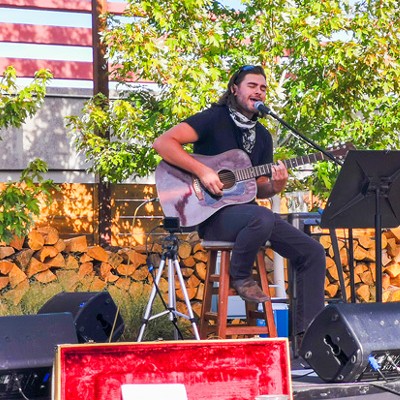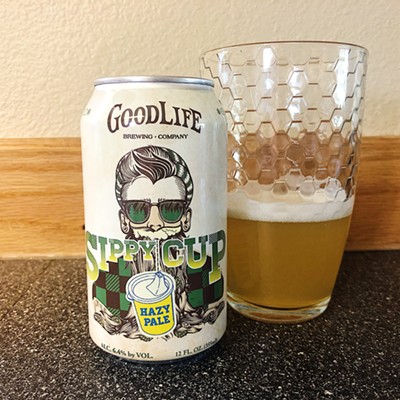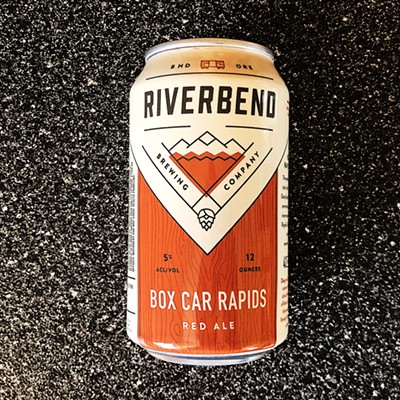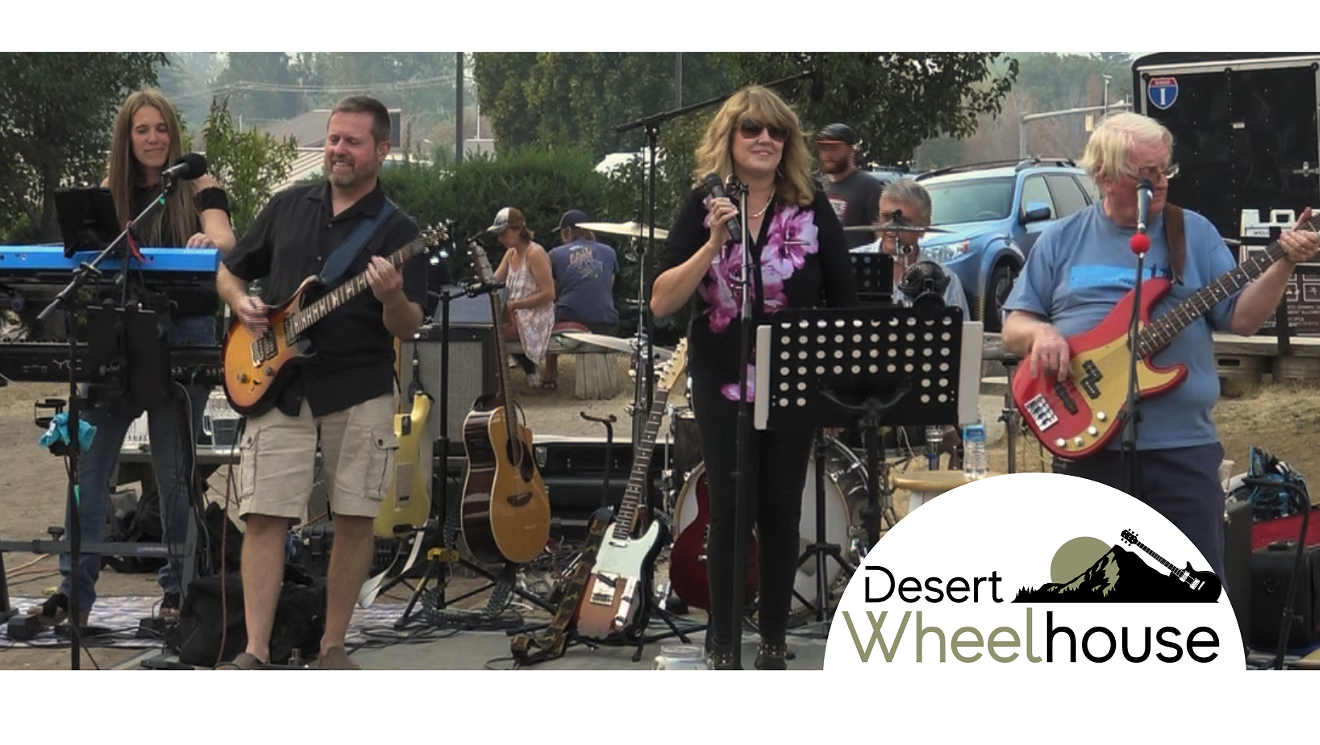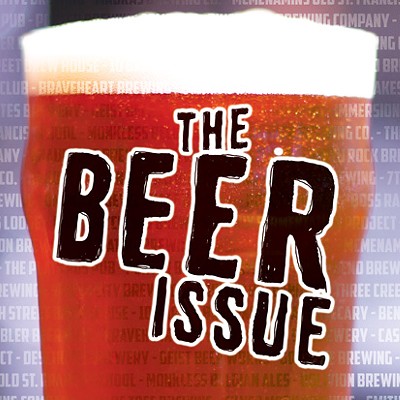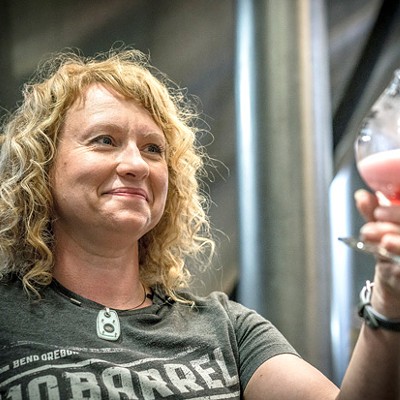Bend is home to people who love outdoorsy endurance sports as much as they do beer. It's not uncommon to see competitive runners or cyclists, for example, celebrating hard races or workouts with beers.
Some drinking athletes believe you can burn off whatever crap you throw in the furnace, so long as it burns hot enough. But at what point does too much consistent alcohol consumption—punctuated with big, boozy nights out—begin to cancel out the quality work you put in on the saddle?
Post-race RPMs
While tying one on after satisfying races is tempting —"We totally slayed our age groups! The next pitcher is on me!"—doing so hinders recovery, says Tim Burnett, a kinesiology instructor at Oregon State University-Cascades.
"Alcohol has been shown to inhibit the recovery process, which is based in inflammation repair and protein synthesis—making new proteins that are going to be more useful for doing better work," Burnett said.
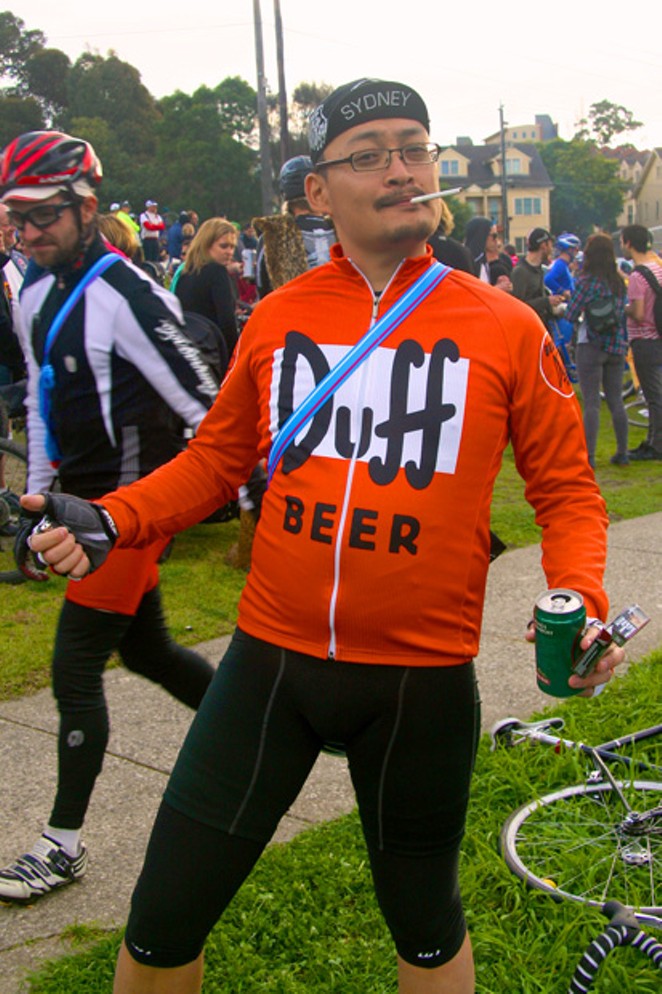
However, the extent of the hinderance hinges on several factors: How much you're drinking, how much you're working out and the relation of these two things to each other. A higher alcohol tolerance from consistent drinking is another factor, Burnett said.
Because there are so many variables, very little scientific literature on this topic exists, Burnett added.
"In general, we can say that chronic heavy drinking is going to be detrimental to training," Burnett said.
But isn't beer "liquid bread," providing much-needed carbohydrates?
"You could make a very bad argument about alcohol having the carbohydrates you need for recovery," Burnett said with a laugh.
Alcohol's impediment of the protein repair process cancels out most nutritional value of beer, Burnett said.
Rallying while hung over
Let's try another scenario the drinking athlete encounters: You're hung over before a morning group bike ride. Burnett says you're at several disadvantages, beginning with the fact there is less blood in your body.
“The problem with ingesting alcohol before exercise is that alcohol is a diuretic—you lose blood volume. And that blood volume is directly related to your ability to work.”—Tim Burnett
tweet this
"One of the primary drivers of high VO2 Max is high blood volume," Burnett said. "That's one of the adaptations we see in people going from couch potato to running a marathon—they get expanded amounts of blood, which means they can deliver more oxygen and do more work. The problem with ingesting alcohol before exercise is that alcohol is a diuretic—you lose blood volume. And that blood volume is directly related to your ability to work."
That's just the beginning. One of the byproducts of our body breaking down ethanol—the type of alcohol in our booze—is a molecule called acetaldehyde, Burnett explained, that is the primary driver of the crappy feelings we have when we're hung over.
"It's a misconception that you feel bad because of dehydration," Burnett said. "If [you're toeing the line of a] marathon, and not feeling good in the first place, that's going to have a huge psychological effect on your ability to perform, regardless of fluid or difficulty regulating your temperature because you can't sweat as well."
Still, many athletes have personal anecdotes about hammering out a great performance even though they raged the night before. Burnett was reminded of a friend who partied the night before he won a marathon.
"The detrimental effects are on a spectrum," Burnett said. "I was absolutely astounded (by my friend's race). Would he have been able to do better if he didn't drink the night before? Absolutely. But he was at a fitness level that it did not matter—for that marathon at least."
Burnett elaborates. As you look at the tiers of athleticism, from amateur, pro to Olympian, the higher you go, the greater the effect of a slight decrease in performance.
"At the Olympic level, it's the difference between placing first and not even being at the Olympics," Burnett said.
But what about beer hand-ups?!
In the amateur ranks, sometimes athletes mix alcohol with sport. Bendite Brandon Gallagher, 43, a masters cyclocross racer, has experience with riding and drinking, although getting tanked the night before a race is something he doesn't do anymore.
"The times that I have done that have turned out pretty pathetic," Gallagher said. "If I do a group ride I usually ride OK, but not very well. If I try to race (hung over), I notice a big difference."
Drinking is particularly common in cyclocross, whose season begins in September, in way of "hand-ups," or mid-race beers the crowd offers racers. That alcohol may offer a slight performance enhancement, Burnett said.
"Alcohol has the great ability of increasing euphoria and decreasing inhibitions," Burnett said. "If we want to look at it from a physiological standpoint, lowering your body's inhibitions can give you a boost to your performance. ...It will often give people a sense that they can do more than they can, which actually might be slightly beneficial. But — and it's a big but — if you are riding quickly on a bike and you are intoxicated, the likelihood of your not being on that bike for too long goes up. ...And, you might actually have to stop and pee."

